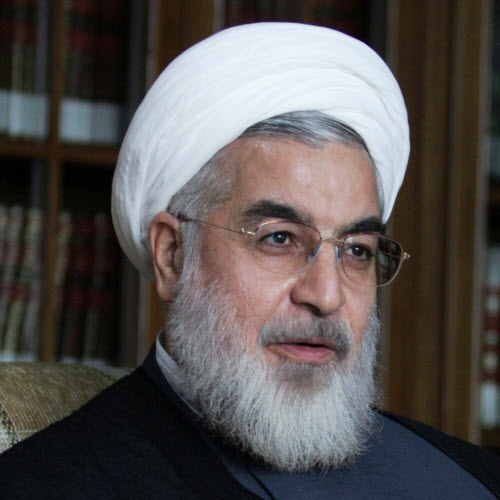
September 20 2013
President Rohani asked the Pasdaran Monday to remain actively engaged in the economy in order to help the country beat back the effects of sanctions.
Many Reformists and business people in Iran have condemned the deep involvement of the Pasdaran in the economy, chiefly as the nation’s largest contractor building highways and railroads and docks among a multitude of projects.
Economic critics say the Pasdaran’s involvement drives out private firms and distorts the economy. Political critics say the Pasdar hand in the economy gives it greater political weight and enables it to have far greater influence than warranted.
Since Rohani’s election there has been much talks of limiting the Pasdaran’s role. The chief of the Joint Staff, Pasdar Major General Hassan Firuz-abadi, even volunteered a few weeks ago to restrict the economic work of the Pasdaran.
But Rohani took the opposite tack Monday in a speech to a gathering of Pasdar officers. He asked them to do a lot in economic realm in order to help fight economic sanctions.
Expressing a favorable regard for the presence of the Pasdaran in the economic arena, Rohani said, “I do not approve of the criticisms of the Pasdaran in the economy. The Pasdaran are not a rival to the people and the Pasdar Corps is nothing like a common contractor. The Pasdar-an must take on highly important projects that the private section is not able to carry out.”
The president said, “I spoke to the Commander-in-Chief [Supreme Leader Ali Khamenehi], saying that the Pasdaran ought to pick a number of national projects. Under sanctions, the Pasdaran must take action and pick three or four big national projects, because it is well aware of the circumstances of the country and the government.
“A country that used to sell 2.5 million barrels of oil daily is now selling less than one million,” Rohani said, in what was the first public acknowledgment of how badly sanctions have hit oil sales.
“We ask the Pasdaran to carry part of the weight now on the government’s shoulders,” the president said.
He then added, “Another issue is smuggling, which has afflicted the country’s economy. The Pasdaran are able to help cope with and stop smuggled goods.” It wasn’t clear why Rohani raised the smuggling issue. Many in Iran believe that Pasdar officers are the biggest smugglers in the country. Some thought Rohani was offering a big role in contracting in exchange for a commitment from the Pasdaran to shut down the smuggling in its midst.
“I would like to ask the Pasdaran to come to the scene in two sections where the government is facing problems [construction and smuggling], so the people will see its sincerity and dedication in defeating the enemy,” Rohani said.
The international media largely missed Rohani’s offer of a bigger role in the economy. Instead, they focused on one brief part of Rohani’s speech in which he said the Pasdaran must stay away from politics.
“The Pasdaran are above and beyond political currents,” Rohani said, “not beside them or within them. The Pasdaran have a higher status, which is that of the entire nation.”
But his discourse on keeping the Pasdaran out of politics was nothing new. In fact, it was just standard rhetorical fare. The Pasdaran are told by everyone up to and including the Supreme Leader that they must be above and beyond politics. And Pasdar officers always respond that they do just that.
Rohani also stuck with the tried and true rhetoric assailing Western conspiracies. He told the officers they need only glance around the region—especially at Syria—to see horrific examples of Western plots to dominate the Middle East.
“We are well aware that the disputes are not over one person or one president or the coming to power of a particular faction in Syria; it goes beyond that and it is obvious that the West has plans for the whole region,” Rohani said.
“What has happened in Libya, Tunisia, Egypt, Yemen and Bahrain are links in a single chain of events, a chain that aims to weaken the [anti-Israeli] resistance front,” he explained.
Rohani said the West wrongly assumes that Iran seeks military control of the region, although that may be one of the few charges the United States had not leveled at the Islamic Republic.
Rohani then boasted that the country’s preeminent position in the region today is due to its superior policies.“Our discourse is one of fighting terrorism in the whole region,” the president said.
Describing foreign countries that have a military presence in the region as “uninvited guests,” Rohani said they must leave, stop interfering in the regional countries and end their Iranophobia campaign.
But all the US forces in the region are there as invited guests. And when host countries no longer have wanted them, they have left, for example, from Saudi Arabia and Iraq.
“It is clear to all of us that the West has a decision for the entire region and doesn’t like our region in its present shape and this is the reason that the British and the French are returning to the region after years,” Rohani said. It was a striking comment to make about London just a few weeks after the British Parliament voted against taking part in any attack on Syria.
